Public Audit and Post-legislative Scrutiny Committee
Annual Report 2018-19
Introduction
This report covers the work of the Public Audit and Post-legislative Scrutiny Committee (the Committee) during the Parliamentary year between 12 May 2018 and 11 May 2019.
The Committee's work is primarily focused on the scrutiny of reports produced by the Auditor General for Scotland (the AGS). The AGS is responsible for scrutinising the expenditure and performance of directorates of the Scottish Government and most other public spending bodies (with the exception of local authorities). Through its scrutiny of the AGS’s reports, the Committee helps to ensure that public funds are spent wisely and holds to account those who are charged with spending taxpayers' money.
The Committee's remit also includes post-legislative scrutiny of Acts of the Scottish Parliament.
Membership changes
Changes to the membership of the Committee during the reporting year are:
Ian Gray MSP (until 1 November 2018)
Anas Sarwar MSP (from 15 November 2018)
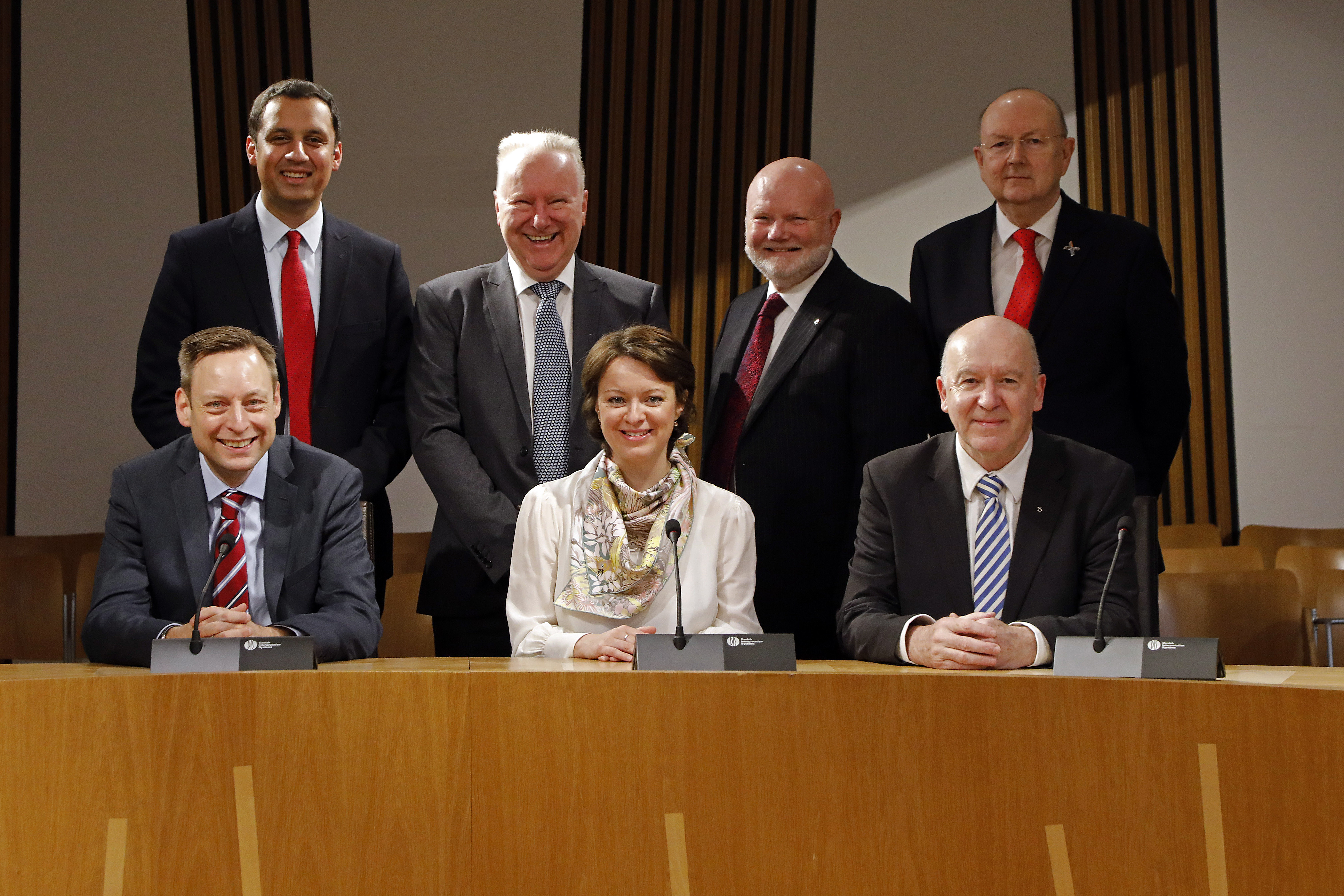
Inquiries and reports
The Committee considered 18 new reports from the AGS, nine of which were ‘Section 22 reports’. These reports set out issues of concern, or interest, highlighted by the AGS in relation to the audit of the accounts of individual public bodiesi. The other nine reports were ‘Section 23' reports which examined the economy, efficiency and effectiveness of the public sectorii. The Committee took oral evidence from the AGS and/or Audit Scotland on each report. The Committee also considered one report from the Comptroller and Auditor General, which was accompanied by a report of assurance by the AGS.
Section 22 reports
Of the Section 22 reports, the following are highlighted (full details of the Committee’s work on each report is available on the Committee’s webpage):
The 2016/17 audit of New College Lanarkshire
This report highlighted the financial difficulties and future financial sustainability of New College Lanarkshire. Following its evidence session with the AGS, the Committee took evidence from the Chair of the Board, the Principal / Chief Executive, other senior officials at the College and the Scottish Funding Council. During this evidence session, issues emerged around how the College was engaging with members of staff in the development of its Business Scenario Plan. As a consequence, the Committee agreed to take evidence from staff representative organisations to explore this issue in more detail. In advance of that evidence session, the senior management of the college sent in several submissions to the Committee, which included information about the engagement work with staff that the board had since undertaken in relation to the business scenario plan.
The 2017/18 audit of Community Justice Scotland
This report highlighted, in particular, governance issues in relation to the board of Community Justice Scotland. It drew attention to the fact that, during 2017/18, the board had operated with a chair and four members, which was less than that specified in the Community Justice (Scotland) Act 2016. The report also raised concerns around arrangements for the chairing of board meetings during the long-term absence of the chair. The Committee took evidence from the Director-General Education, Communities and Justice, as the Scottish Government's Accountable Officer, to clarify the support that had been provided to Community Justice Scotland by the Scottish Government. The Scottish Government fully acknowledged the AGS's findings in the report. Following the meeting, the Scottish Government provided further detail about the recruitment and composition of the board, including its gender balance. The Committee will continue to monitor through its audit scrutiny the support provided by the Scottish Government to sponsored public bodies.
The 2017/18 audit of the Scottish Government Consolidated Accounts
This section 22 report highlighted a range of issues, including the implications of the new borrowing powers, financial reporting and the Scottish Government's corporate governance structure. The report also highlighted that, as Scotland's fiscal responsibilities continue to grow, there is an increasing need for the Scottish Government to produce more detailed and transparent performance reporting that better links spending with outcomes. The Committee took evidence from Leslie Evans, Permanent Secretary and sought clarity on a number of issues raised in the report, including how the Scottish Government will ensure transparency in respect of the loans it provides to private companies. The Committee will pursue these issues, where appropriate, when it considers the 2018/19 audit of the Scottish Government Consolidated Accounts.
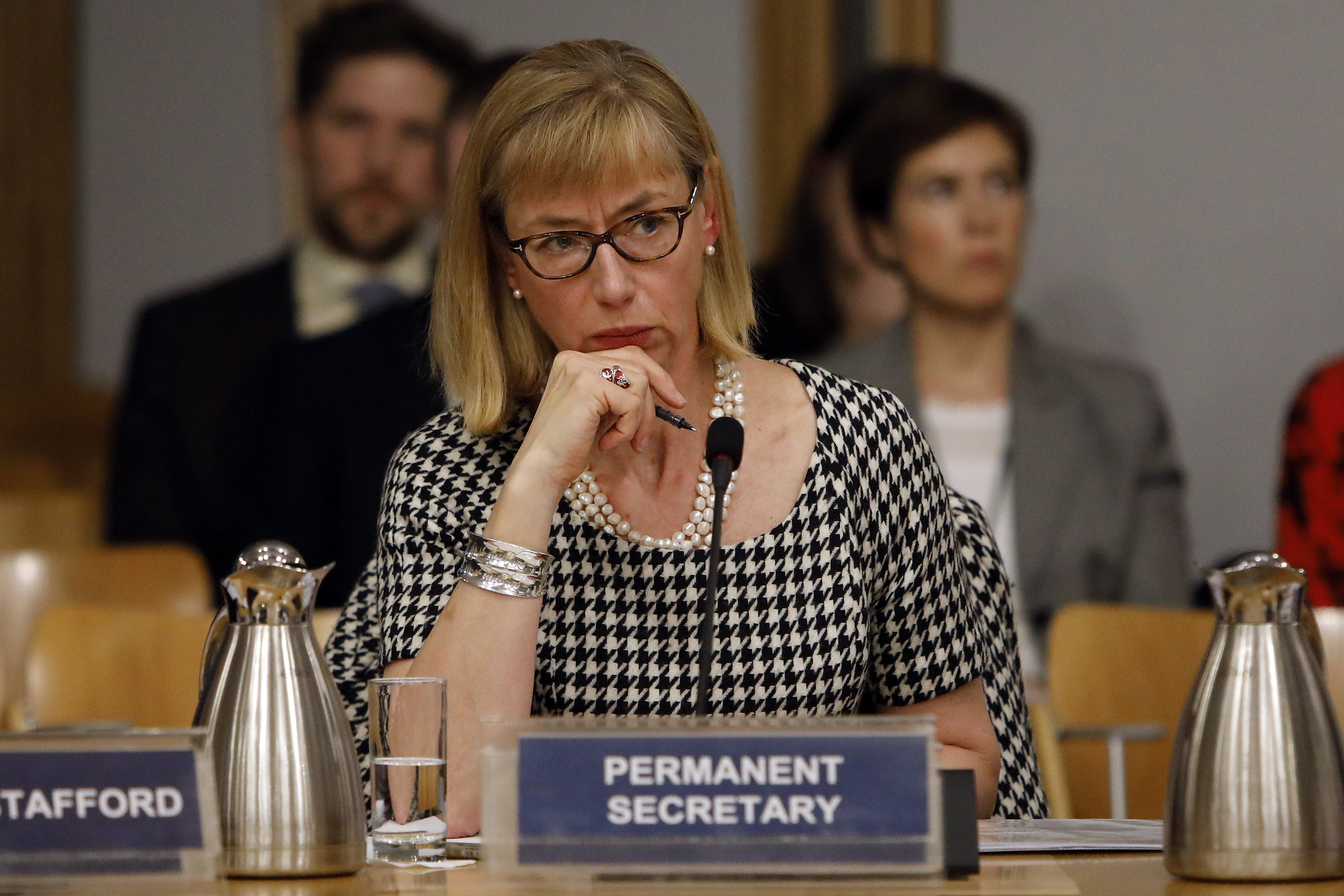
The 2017/18 audit of Scottish Social Services Council
This report drew attention to governance and transparency issues in relation to the organisation's digital transformation programme. The report indicated that the Scottish Social Services Council (SSSC) had "fallen short of the expected standards of governance and transparency in its decision to withdraw from the shared services agreement, in implementing a digital transformation strategy, and in managing the project". The Committee took evidence from the Chief Executive of the SSSC and then from the Director-General Education, Communities and Justice at the Scottish Government, to explore the issues raised in the report. The Committee then wrote to the Permanent Secretary raising concerns about the support provided by the Scottish Government to sponsored bodies and broader issues around the governance of public sector IT projects. The Committee’s work was covered widely by the media, helping to demonstrate to the public how it holds public bodies and officials to account. The Committee will continue to monitor the broader issues to which this audit gave rise.
The 2017/18 audit of NHS Tayside
This report highlighted the financial challenges facing NHS Tayside and the significant governance issues concerning the use of ehealth monies and endowment funds which had emerged in 2018. The report also highlighted governance concerns in relation to the payments made to the former chief executive on her departure from the board. The Committee took evidence from the Chair of the Board and the interim Chief Executive seeking clarity about the circumstances of the payments and the steps that the board was taking to address its financial sustainability and the governance concerns. Given the extensive scrutiny that the Committee had undertaken in respect of NHS Tayside, the Committee agreed to publish a report on both the 2016/17 and 2017/18 audits of the board.
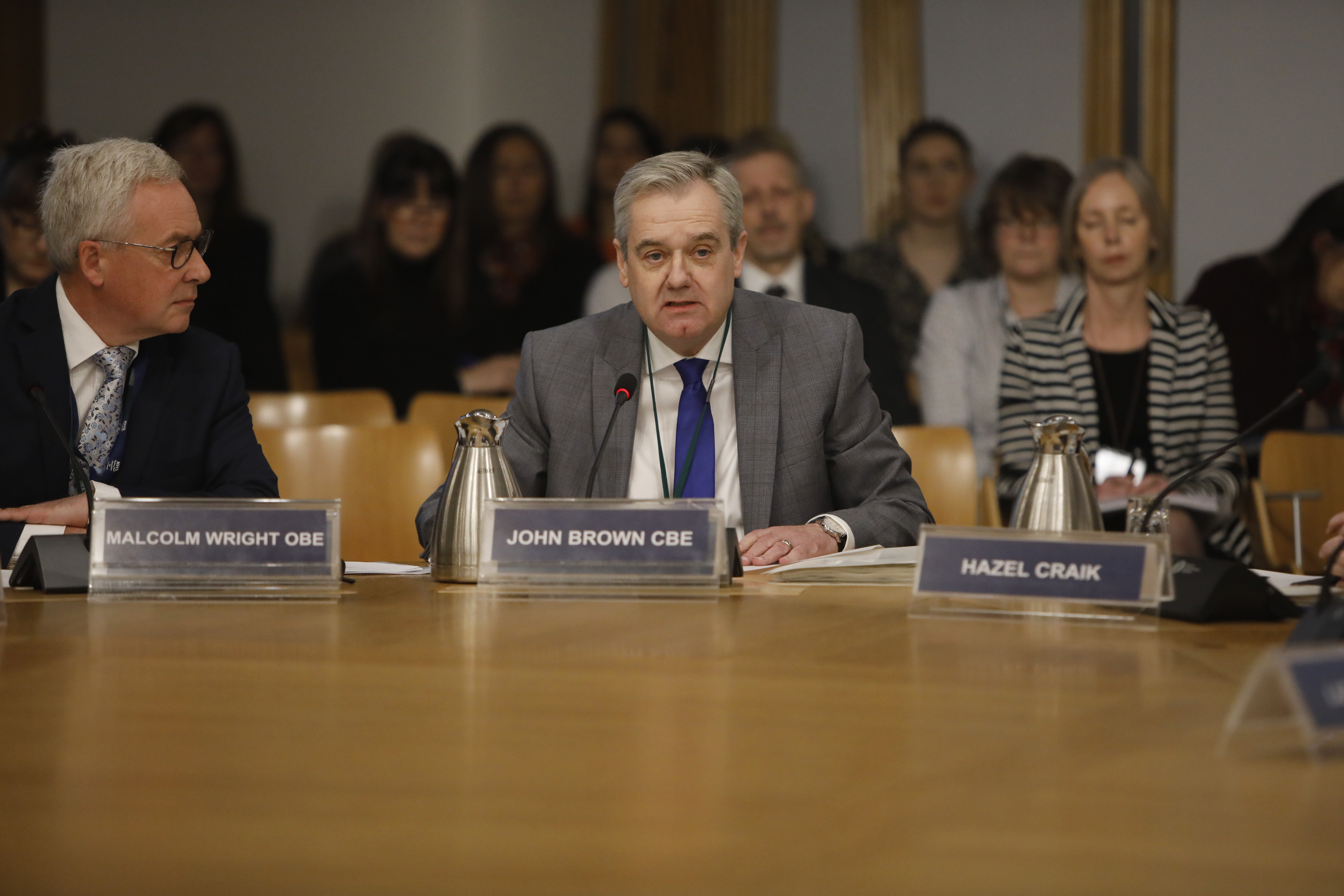
Section 23 reports
Of the Section 23 reports, the following are highlighted (full details of the Committee’s work on each report is available on the Committee’s webpage):
Scottish Fire and Rescue Service
The Scottish Fire and Rescue Service (SFRS) update report highlighted the positive relationship existing between the board and management, describing them as having a "shared ownership" of the issues faced by the organisation. However the report also expressed concerns about the £389 million capital backlog that SFRS had inherited from the eight former services. Following the evidence session with the AGS, the Committee wrote to the SFRS seeking information about the breakdown of the backlog and an indication of the work that was regarded as critical. In response, the SFRS provided further detail about the nature of the backlog, including assurances that the SFRS did not have a backlog in the regular maintenance of its assets and that all assets in operational use were fully maintained.
Children and young people's mental health
This section 23 report concluded that the mental health system for children and young people is "complex and fragmented", making it difficult for children, young people and their families to get the support they need. The Committee took evidence from a selection of health boards, local authorities and health and social care partnerships to explore the concerns raised by the AGS. The Committee also took evidence from Dame Denise Coia, Chair of the joint Scottish Government and COSLA taskforce on children and young people's mental health, along with the Director-General Health and Social Care/Chief Executive of the NHS. Following the evidence sessions, the Committee published a report on the key issues raised during its scrutiny of the audit.
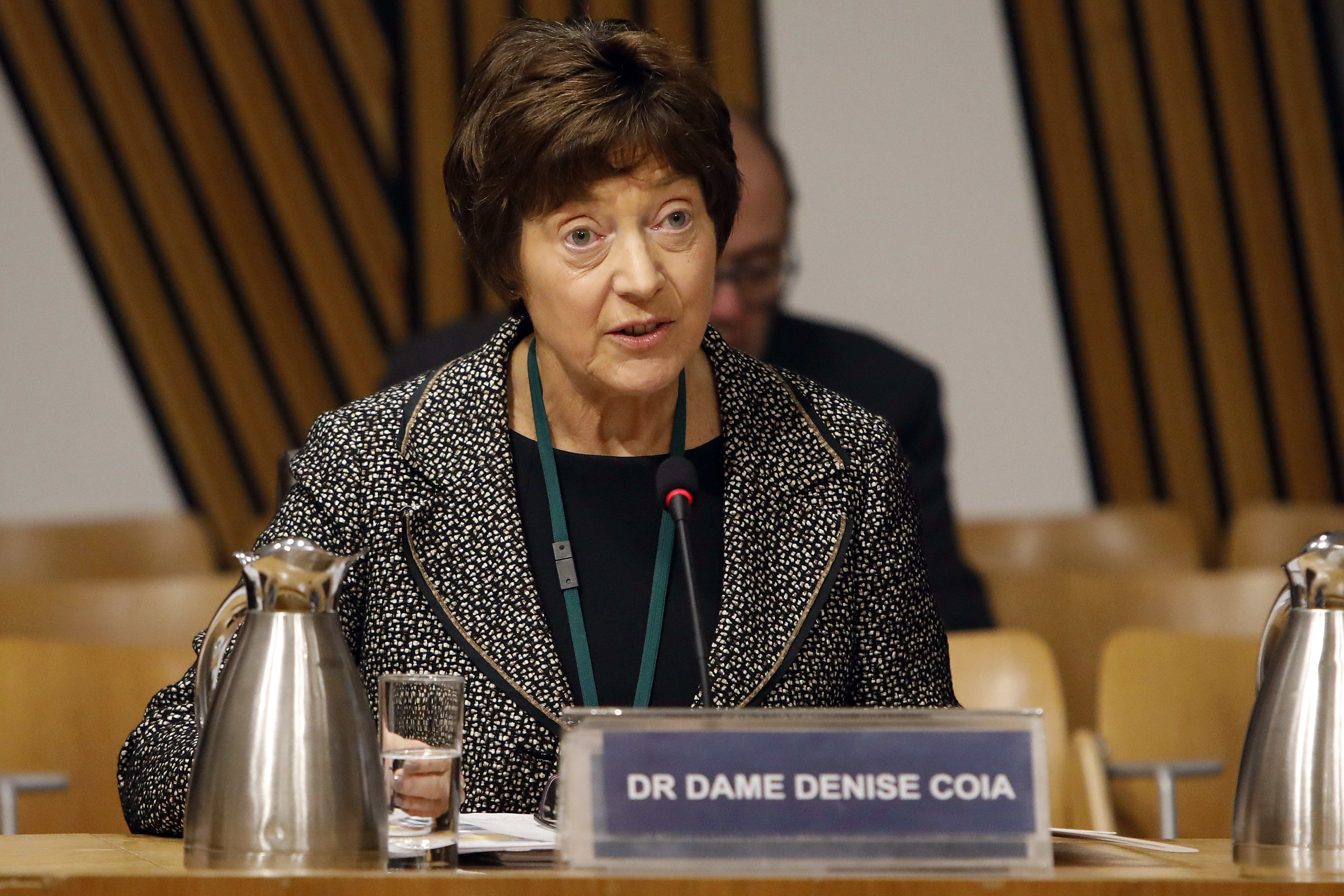
Forth Replacement Crossing
The report on the Forth Replacement Crossing concluded that the project had delivered value for money and had been delivered under budget, helped by its competitive procurement processes for construction contracts. The report recommended that the Scottish Government should share good practice from the project more widely across the public sector. The Committee wrote to the Scottish Government seeking clarity on its plans to take forward this recommendation and also to Transport Scotland on how it intended to apply good practice to future projects. The Committee will continue to raise through its scrutiny of audit reports the importance of sharing good practice across the public sector.
NHS in Scotland 2018
This report concluded that the NHS in Scotland was not in a "financially sustainable position". It further noted that performance against the eight key national performance targets continued to decline and that no board had met all the key national targets. Given the issues that the report raised, the Committee agreed to combine its scrutiny of the report with that of the 2017/18 audits of NHS Highland - Financial sustainability and NHS Ayrshire and Arran - Financial sustainability at a future meeting. The Committee took evidence from the two boards and from the Director-General Health and Social Care/Chief Executive of the NHS and the Chief Medical Officer on the issues raised in the reports. The Committee agreed to highlight its concerns about the long-term financial sustainability of the NHS and the challenges that it faces in its report on NHS Tayside.
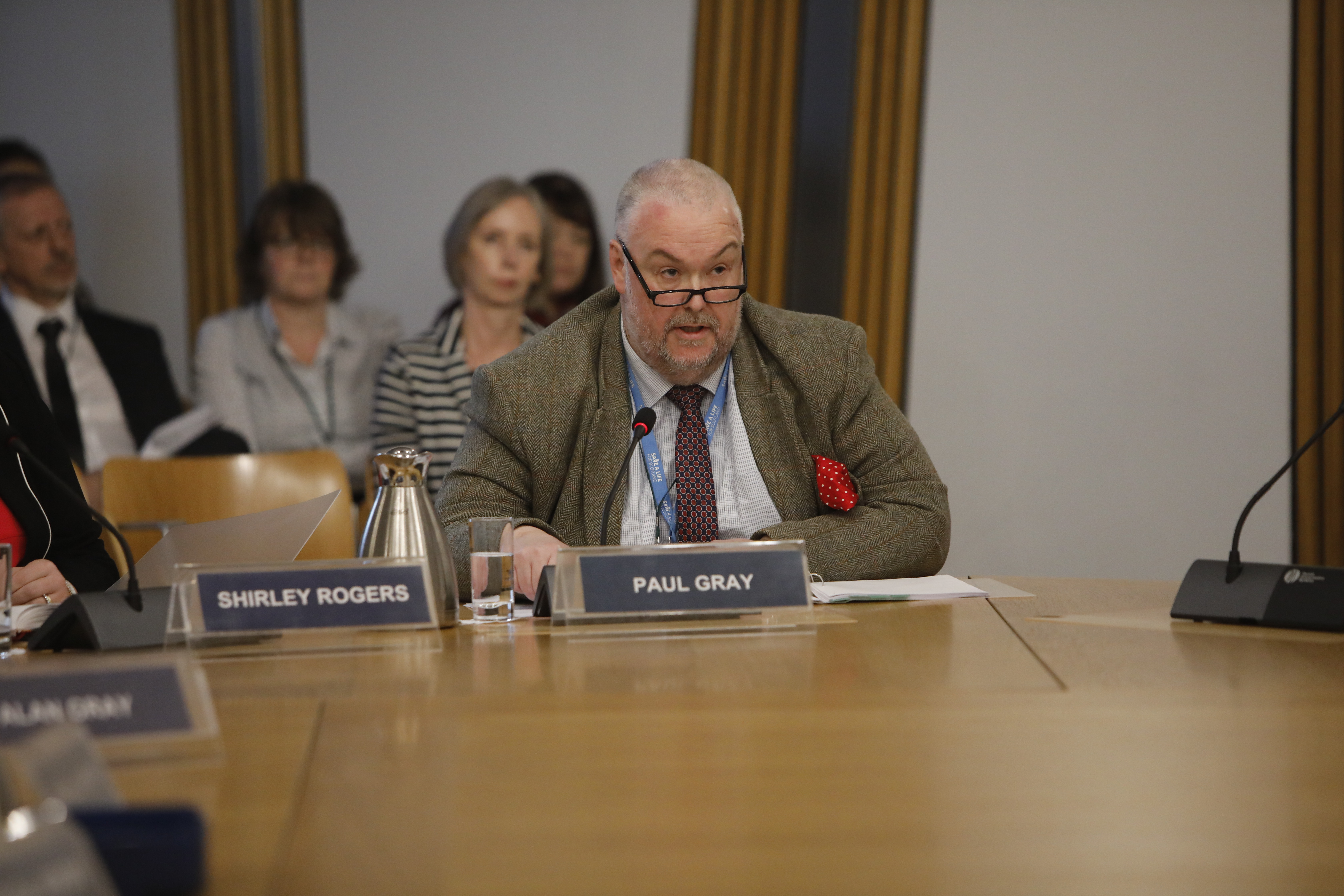
Other work
The Committee also undertook other work in relation to its audit remit. Some of this work is highlighted below:
Scotland Act 2016: Audit and Accountability Framework
The Committee continued to scrutinise the audit and accountability arrangements for bodies affected by the Scotland Act 2016. The Committee sought a progress update from the Cabinet Secretary for Finance, Economy and Fair Work on the draft framework for audit arrangements and the extent to which the concerns that had been raised by the Committee were being addressed. The framework was finalised in February 2019. The Committee will monitor how the framework works in practice.
The administration of Scottish income tax 2017/18
The Comptroller and Auditor General is required to report to the Scottish Parliament on HM Revenue and Custom's (HMRC) administration of Scottish income tax. The AGS provides assurance to Parliament on that report. After taking evidence from the Comptroller and Auditor General and from the AGS, the Committee took evidence from HMRC. The Committee sought clarity from HMRC on a number of issues, primarily relating to the accurate identification of Scottish taxpapers. Following the evidence session, the Committee sought further information from the HMRC on issues arising from the evidence session. The Committee is awaiting a response to this letter at the time of writing this report.
Major Capital Projects
The Committee continued to consider biannual Major Capital Projects (MCP) progress updates. The updates from the Scottish Government provide information on major capital projects with a capital value of more than £20 million where the Scottish Government has a lead role in procuring or funding. It also includes projects which are being delivered through the Scotland's Schools for the Future Programme and those health projects being taken forward through the Scotland-wide ‘hub’ initiative. The Committee took evidence on the most recent update in January 2019 from the Scottish Government, Transport Scotland and the Scottish Futures Trust. The Committee continues to review the way in which it scrutinises the MCP updates.
Post-legislative Scrutiny
The Committee has continued to develop and progress its post-legislative scrutiny work programme. The work that it has undertaken in this reporting year can be found below.
Biodiversity
Following a call for evidence in relation to the biodiversity and biodiversity reporting duties placed public bodies by the Nature Conservation (Scotland) Act 2004 and the Wildlife and Natural Environment (Scotland) Act 2011, the Committee took evidence from stakeholders and then from the Cabinet Secretary for Environment, Climate Change and Land Reform. The Committee published its report in July 2018, in which it explored the reasons for the low level of compliance with the duties and made recommendations to the Scottish Government and Scottish Natural Heritage.
Control of Dogs (Scotland) Act 2010
The Committee agreed to undertake post-legislative scrutiny of the Control of Dogs (Scotland) Act 2010. The Committee held six oral evidence sessions in February and March 2019 from a variety of witness, including parents of children who had been attacked by dogs, medical professionals, campaigners, representative bodies and local authorities. It then took evidence from Christine Grahame MSP, as the member who introduced the original bill, and the Minister for Community Safety. The Committee plans to report on its findings before the summer recess.
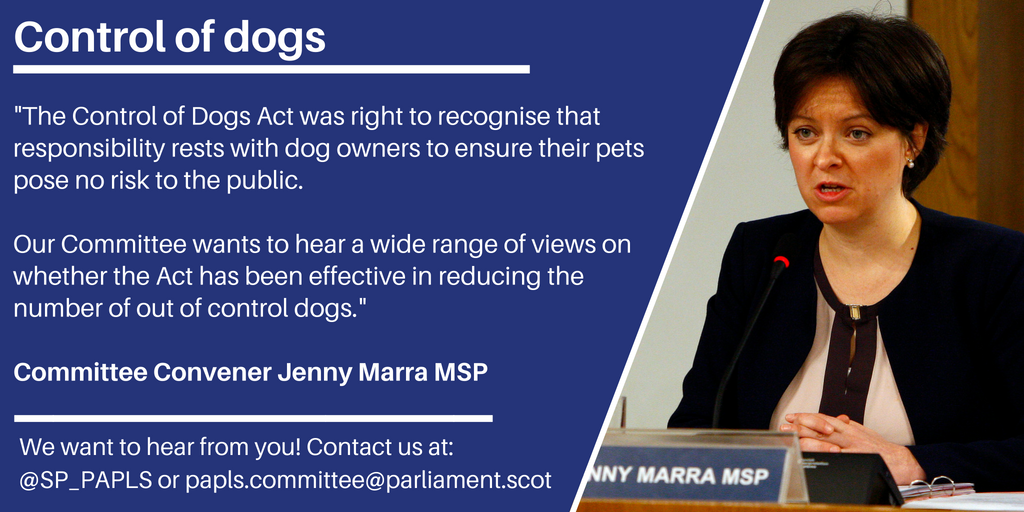
Freedom of Information (Scotland) Act 2002
The Committee launched a call for evidence in relation to its post-legislative scrutiny of the Freedom of Information (Scotland) Act 2002 on 1 March 2019. The call for evidence is still open at the time of writing this report.
Meetings, equalities, engagement and petitions
Meetings
The Committee met 30 times in this Parliamentary year, with all meetings held in the Scottish Parliament. All meetings were held partly in public and partly in private. One meeting was held briefly in public to agree to consider a draft report in private. No meetings were held wholly in private and no meetings were held wholly in public. The purpose of the majority of the private items was to consider the evidence heard, the Committee's future approach to specific AGS reports or to consider the Committee's work programme.
Equalities
Audit Scotland continues to build diversity and equality into its national performance audits, with its Audit Management Framework requiring it to consider any potential equalities issues at the scoping stage of performance audits. The Committee continues to mainstream equalities throughout its post-legislative scrutiny work.
As part of its scrutiny of the AGS's section 22 report on the 2017/18 audit of Community Justice Scotland, the Committee questioned the Scottish Government on the gender balance of the Community Justice Scotland Board with reference to the requirements of the Gender Representation on Public Boards (Scotland) Act 2018.
Engagement
As part of its post-legislative scrutiny of the Control of Dogs (Scotland) Act 2010, the Committee held three public engagement meetings in Airdrie, Dalkeith and Dundee in December 2018 and January 2019. The Committee heard from members of the public with direct experience of out of control dogs and use of the 2010 Act. The Committee published anonymised notes of each meeting, which allowed the information that it received to be considered as formal evidence. In its oral evidence sessions, the Committee heard from parents whose children had been attacked by dogs to obtain their views on the impact of dog attacks and the adequacy of overall dog control legislation.
The Committee's Twitter account has now over 1600 followers, an increase of approximately 300 since the Committee's last annual report. The Committee uses its Twitter account to share information on its public audit work and to draw attention to its calls for evidence relating to its post-legislative scrutiny work.
Petitions
PE01676: The Land Registration etc. (Scotland) Act 2012 (the 2012 Act) was referred to the Committee by the Public Petitions Committee. It was given initial consideration by the Committee at its meeting on 14 June 2018. The Committee agreed to include the issues raised in the petition when agreeing its approach to post-legislative scrutiny of the 2012 Act.
Bills and UK legislation
The Committee does not usually consider Bills and has not had the opportunity or occasion to comment or influence UK legislation.